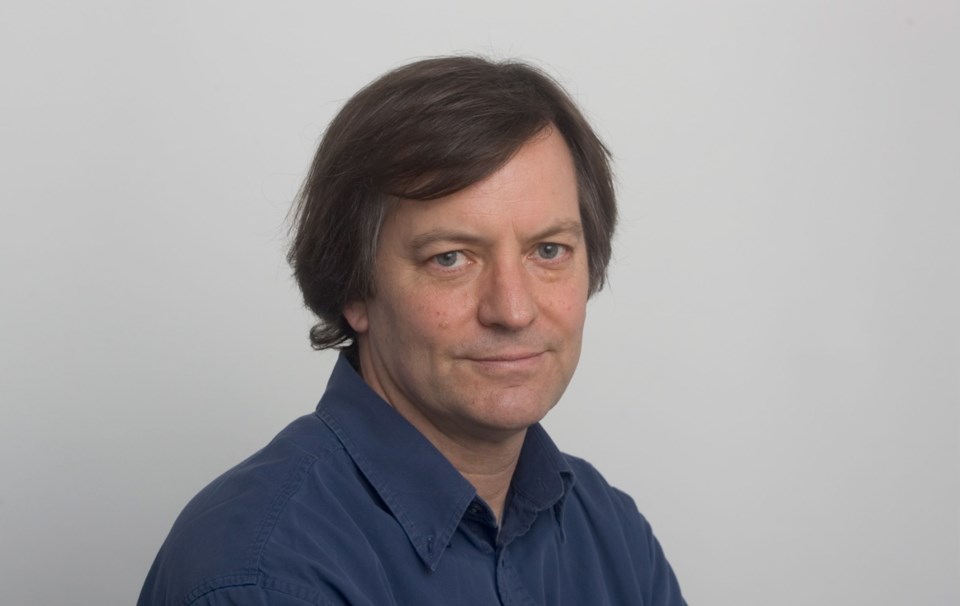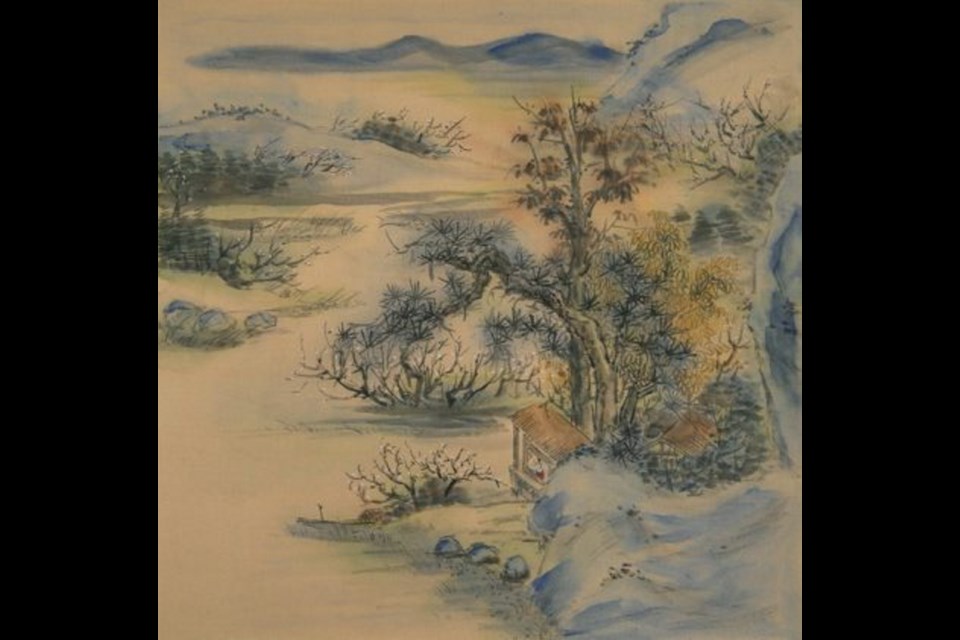 Lifu is the “art name” of a man who came to Victoria in January this year. A native of Shenyang in north of China, he grew up in an artistic family where his mother, Zhi Zhang, was a modern expressionist paper-cut artist.
Lifu is the “art name” of a man who came to Victoria in January this year. A native of Shenyang in north of China, he grew up in an artistic family where his mother, Zhi Zhang, was a modern expressionist paper-cut artist.
After graduating from college, Lifu became a television director and producer, and rose to a high position in that field. With his wife, Xiao Ning, also a journalist, they lived in Shenzhen and achieved great success in this, the fastest-developing city in the new China. Shenzhen is a modern metropolis that links Hong Kong to China’s mainland.
With success came the means to live as they wished, but Lifu seemed to lack fulfilment. Quoting Socrates, he said: “The unconsidered life is not worth living.”
So, one day 10 years ago, he put aside that professional career, walked into his studio and picked up a brush. Since then, he has dedicated himself to the pursuit of higher things.
Like a Chinese sage of old, he lifted his eyes to the noblest aspects of life. For him, art is a journey and a spiritual practice. He dedicated himself “to learn from the masters of old, to stay hungry and be curious, to keep an open mind without any boundaries.” With such goals before him, he read deeply in classical Chinese poetry and practised “the way of the brush” — both for writing and painting.
In the past year, Lifu has created a new exhibition for Winchester Galleries. The first pictures Lifu showed me were classical compositions, square landscapes in ink and colours on silk. While these convey the colours of the seasons and an atmosphere of clouds and mist, they don’t represent any particular place. They are a distillation of his memories and experiences.
In each, a small character — representing the artist — provides a point of access. Whether we discover him sitting in a boat, walking on the trail or looking out the window of a rustic cabin, his feelings and reactions to the scene around him become our own. We are experiencing it from within.
A handsome book shows the range of Lifu’s more emotive and expressive landscape motifs. In these, he pours and floods pools of ink and water onto absorbent paper without much drawing, in what is known as the “boneless” style. If the artist is in tune with the cosmos, and brings to the moment a broad experience of life, this organic flow and puddling of ink may recreate a microcosm of mountains and clouds, for both large and small are given form by the same forces.
While these flowing landscapes do not appear in the current show, you’ll see one long horizontal scroll of poppies that has its genesis in the same principles. Lifu’s ink implies a bower of free-form leaves suffused with all the joy of a garden, and its coral pink blossoms bloom naturally.
Many paintings represent elements of nature, succinctly written like little poems onto pages of white paper. Lifu’s painting of a cat is a simple flourish of the brush, not so much intended to look like a cat as to convey “catness.” He provided me with a list of the essences he strives to attain in his paintings:
“When I paint a cat, I need to draw its interest and curiosity; when I paint a dog, I draw its loyalty; when I paint a tiger, its momentum; with a lion, I paint power and prestige; when I paint a chicken, I express its dynamics.”
With decisiveness and freedom, he sets a drop of ink flowing out across the paper strategically dampened by a brush dipped in clear water. Somehow this mark tells us a lot about cats. Each of these simple calligraphic paintings is inscribed with a short text in Chinese characters. Though I can’t read a word of what Lifu has written, his confident dancing letter forms inevitably reveal the personality of the writer in every stroke.
With his wife Ning assisting as a translator, he told of the relationship he sees between traditional China and Victoria: “Just like Victoria, the oriental landscape paintings can nourish a human’s heart.” We spoke of the misty mountainsides, and the gnarled and ancient trees that are part of our local landscape, and also the sort of thing the sages of ancient China revered.
“Unfortunately, most beautiful Chinese scenery can only be found in memory,” Lifu smiled. “However, Victoria makes me realize an ancient China which was painted by the remote masters. Victoria makes me feel a little strange, but it gives me a warm feeling.”
All around Victoria, at Sooke and Goldstream and on the Gulf Islands, one finds the rocks and water that are the essence of Chinese landscape paintings. The artist commented that the people here seem to have a reverence for animals, for nature and for the seasons. And certainly there is a peacefulness and freshness in the atmosphere that is not available in Shenzhen.
In his way, Lifu intends to introduce Chinese landscape painting to this city, and intends to create a set of paintings of Victoria scenery, “to show how Victoria’s beauty is seen by the eyes of an Eastern artist.”
Lifu’s hope is “to be an angel of the Oriental culture.”
Lifu: Poetic Painting at Winchester Galleries, 2260 Oak Bay Ave., 250-595-2777, winchestergalleriesltd.com, until April 30.



